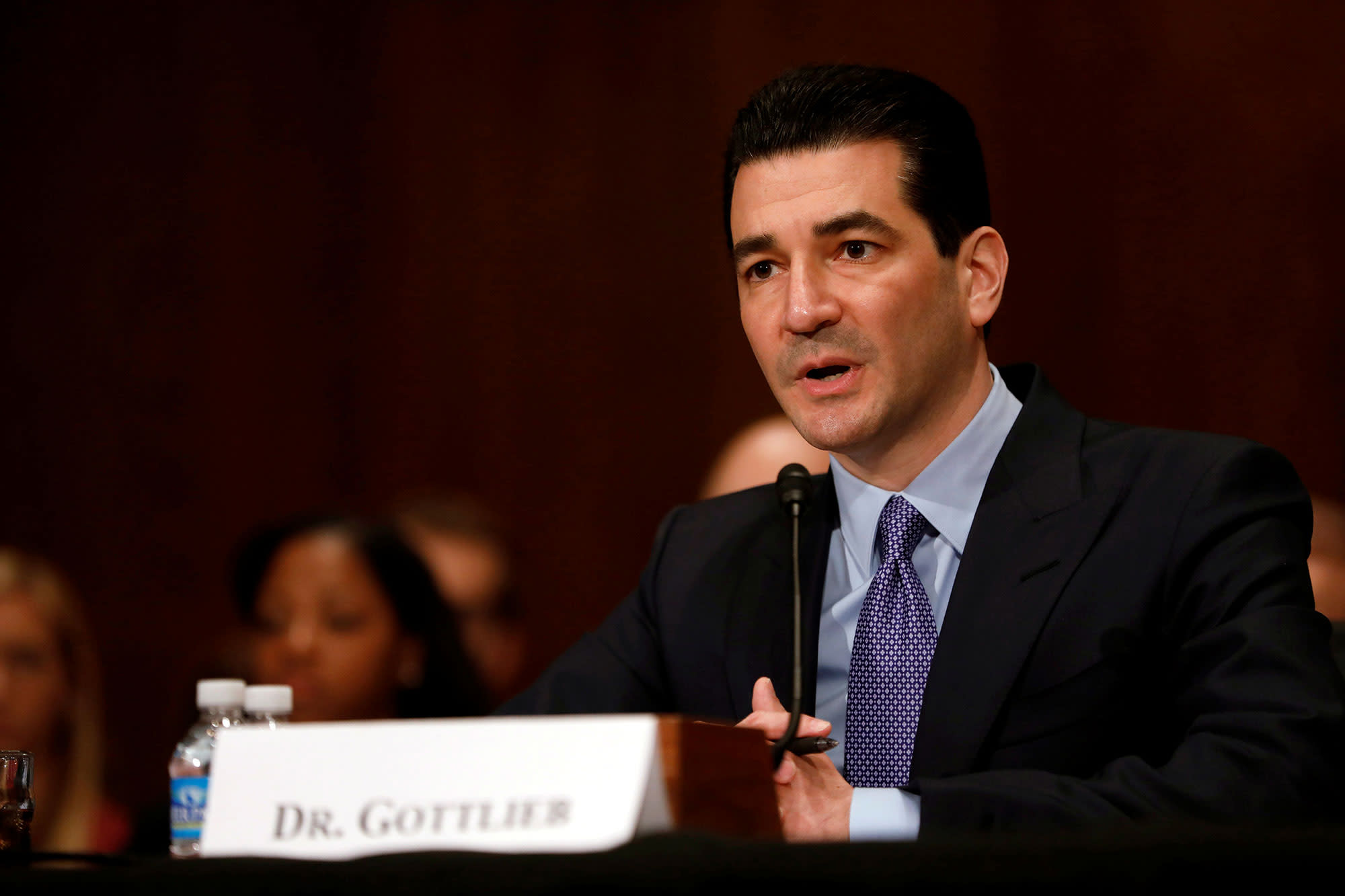
The Biden administration's recently announced restrictions on travelers from India are unlikely to play a significant role in limiting new coronavirus cases in the U.S., Dr. Scott Gottlieb told CNBC on Friday.
"Will it have an impact? Perhaps a minor impact on the margins in terms of reducing introductions. It's not going to dramatically affect our trajectory at this point," the former Food and Drug Administration commissioner said on "Closing Bell." "It's probably going to do more harm to India than any good that it attributes to us."
Gottlieb, who sits on the board of Covid vaccine maker Pfizer, said he thinks the White House's primary rationale for restricting travel from India is concern over the coronavirus variant known as B.1.617. It was first detected in the country and is believed to be highly contagious.
"But that variant is here anyway and the best way to reduce the risk of that variant is, frankly, to get more Americans vaccinated," said Gottlieb, who led the FDA in the Trump administration from 2017 to 2019. "That's going to be the best backstop against the spread of that variant, not restricting travel at this point."
White House press secretary Jen Psaki earlier Friday announced the travel restrictions, which go into effect Tuesday. India has been experiencing a major surge of Covid cases in recent weeks, straining its health-care system as daily death counts hit new records.
The travel order is expected to apply to non-U.S. citizens or permanent residents who have recently been in India, according to a person familiar with the matter. That means the restrictions will take a similar format to those that been implemented on much travel to the U.S. from China, Brazil and the European Union, effectively barring most visitors from India to the U.S.
"There are some studies that show when you implement travel restrictions — and most of the studies that have been done have looked at this in the context of an influenza pandemic — that you can delay introduction of a virus into a new region, that you slow the introduction and maybe reduce the peak of the epidemic that another country is going to experience," Gottlieb said.
If the U.S. would have put in place travel restrictions "that weren't so leaky" earlier in the pandemic, Gottlieb said, it's possible that it would've taken longer for the coronavirus to enter into the country and limit the severity of the outbreak.
"But at this point, we have enough virus here in the United States that we're not going to prevent introduction of the virus from India," he said.
The White House did not immediately respond to CNBC's request for comment on Gottlieb's remarks.
Coronavirus cases in the U.S. have continued to decline as more Americans are vaccinated against Covid. On Friday, data from the Centers for Disease Control and Prevention showed that more than 100 million Americans have been fully vaccinated.
The pace of new vaccinations each day has been slowing down, however, and states are working to find ways to appeal to Americans who are not particularly eager to get a Covid shot.
"I think we can continue to chip away at it," Gottlieb said, suggesting that a drop off in average shots per day "doesn't mean we're doing a bad job." He added, "I think it's inevitable that it's going to start to slow as you get into softer demand."
"Things like vaccination buses where they just drive up into communities and people can show up and get vaccinated on site with no wait. That's the way we're going to get more people vaccinated," Gottlieb added. "Also delivering vaccines through worksites, that's going to help as well."
Disclosure: Scott Gottlieb is a CNBC contributor and is a member of the boards of Pfizer, genetic testing start-up Tempus, health-care tech company Aetion Inc. and biotech company Illumina. He also serves as co-chair of Norwegian Cruise Line Holdings' and Royal Caribbean's "Healthy Sail Panel."
https://ift.tt/3ueL7Nq
World
Bagikan Berita Ini














0 Response to "Dr. Scott Gottlieb says travel restrictions on India will have little impact on U.S. Covid cases - CNBC"
Post a Comment